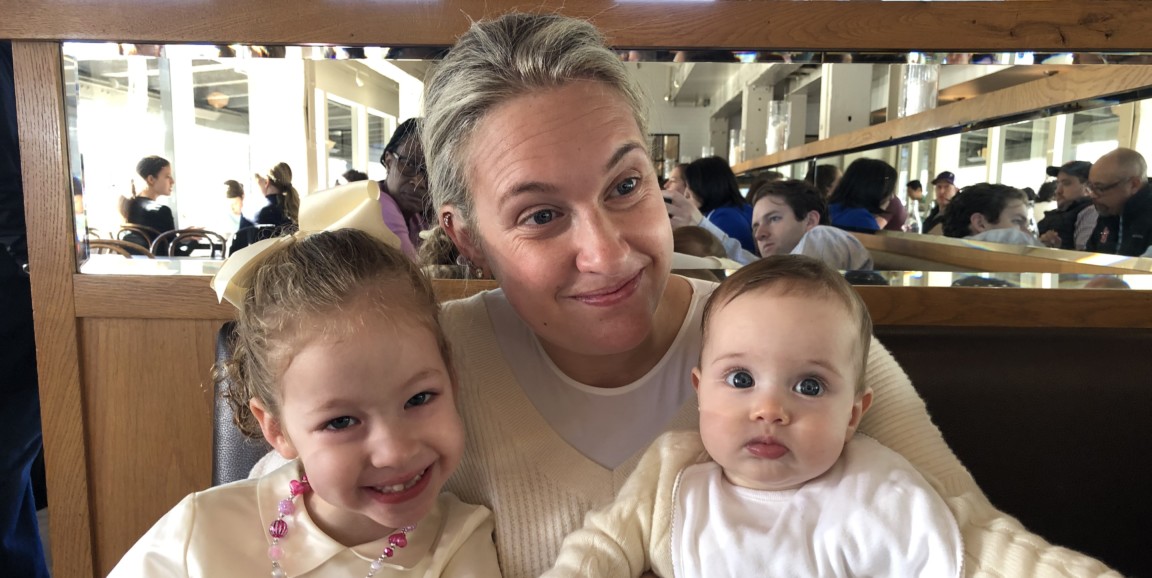June Gordon, MD, was nine months pregnant with her second child when she graduated from Stanford's emergency medicine residency program last spring. She was a bit of an anomaly; the hours and obligations of a medical residency program present significant roadblocks to childbearing.
"It's the hardest thing I've ever done, but I wouldn't change it for anything," Gordon explained to me recently when we sat down to discuss the intersection of maternity and residency, and her new study on a return-to-work policy for resident parents in Academic Emergency Medicine.
"There's nothing new about juggling family and career. It's just that residency is a particularly difficult time to be pregnant and/or a new parent. And the reality is we are training more female physicians than ever before, and many don't want or cannot wait to have children."
The path is now a little easier for current and future Stanford Emergency Medicine residents, thanks to Gordon's efforts.
In fall 2017, as then-chief resident, Gordon worked to form a task force of policy makers and department stakeholders. Originally, the group intended to address maternity leave, but faced too much red tape. For example, the American Board of Emergency Medicine mandates 46 weeks per year of residency.
Instead, the group focused on resident parents returning to work and developed a new parent policy. The policy provides antepartum protection to help mitigate increased risks for preterm labor, and return-to-work scheduling guidelines to help ease this transition, while still enabling career development for residents.
In some ways, the structure of the emergency medicine residency lends itself to the accommodations. Each class includes at least 15 residents who can help offset shifts, unlike programs such as surgical specialties, which generally have fewer residents. Also, emergency medicine clinical work is typically over at the end of a shift, meaning no home call.
After multiple conversations with key stakeholders over the span of six months, the task force arrived at several key agreements that included (among others) no overnight shifts, no sick call and no more than three scheduled shifts in a row for birth mothers for six weeks after their return-to-work date. The policy also includes antenatal provisions and benefits for returning fathers.
Some issues were beyond the scope of the project. For example, Gordon is hopeful that future developments will include a lactation room in the residency area of the emergency department. She recalls her first year of residency, after her first child when the designated lactation room was a long walk away. If she chose to pump, she would be absent from the emergency department for at least 30 minutes, so she would at times go an entire 12-hour shift without pumping.
The new proposed policies for residents were piloted within Stanford emergency medicine in 2018 and were approved as a standing policy in the emergency medicine residency program this year.
For Gordon, the policy she helped draft went in to effect after she graduated and delivered her second daughter, but as she is quick to note, there are already two expectant residents who stand to benefit.
"It makes sense," she says. "We want our residents to be personally and professionally fulfilled. Our patients benefit from that. If having children is what brings that fulfillment we have to support it and normalize the process. Residents should not be afraid to tell their programs they are pregnant."
That fear, according to Gordon, comes from recognition of the staff scheduling complications that inevitably arise out of a pregnancy. It can be hard to shake that mindset. Gordon had been accepted to a post-residency fellowship when she found out she was expecting her second child, and when she told her program director, she apologized. "He responded by saying, 'Why are you sorry? That's wonderful!' I'm so grateful for that conversation, and that's how it should be," she says.
Photo courtesy of June Gordon




